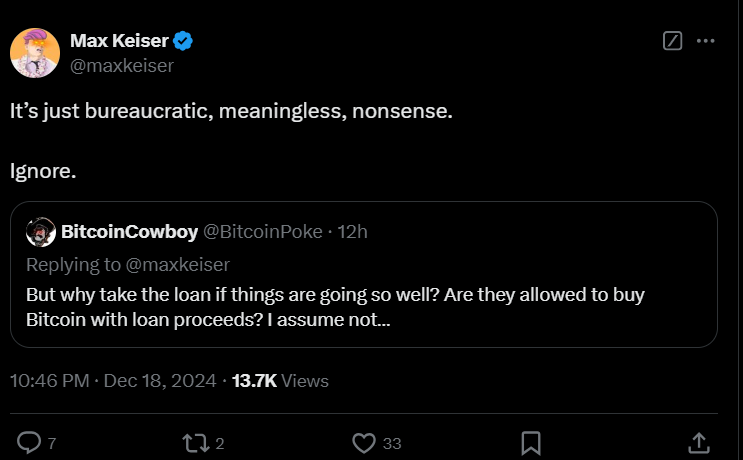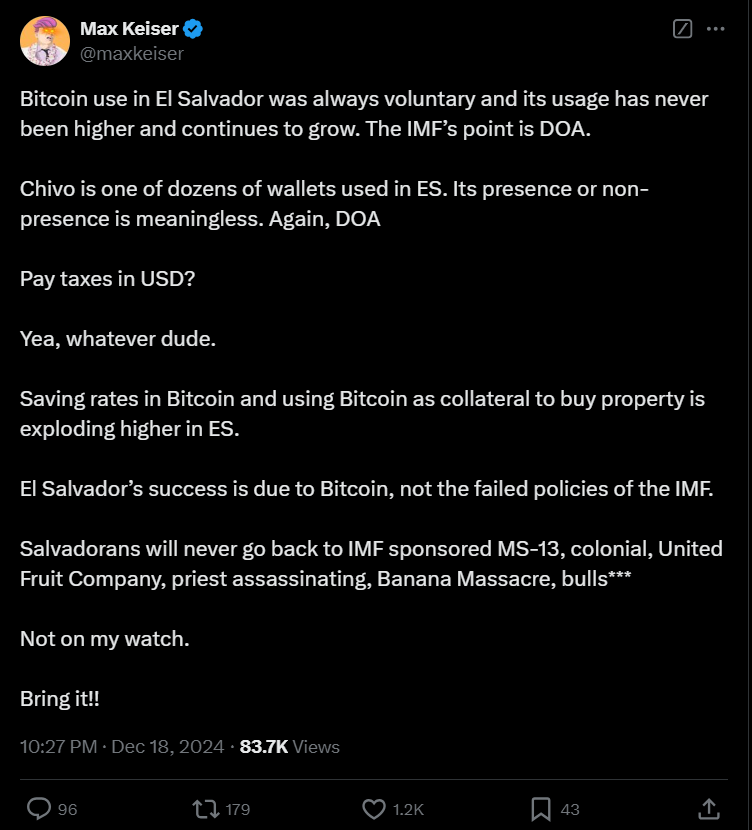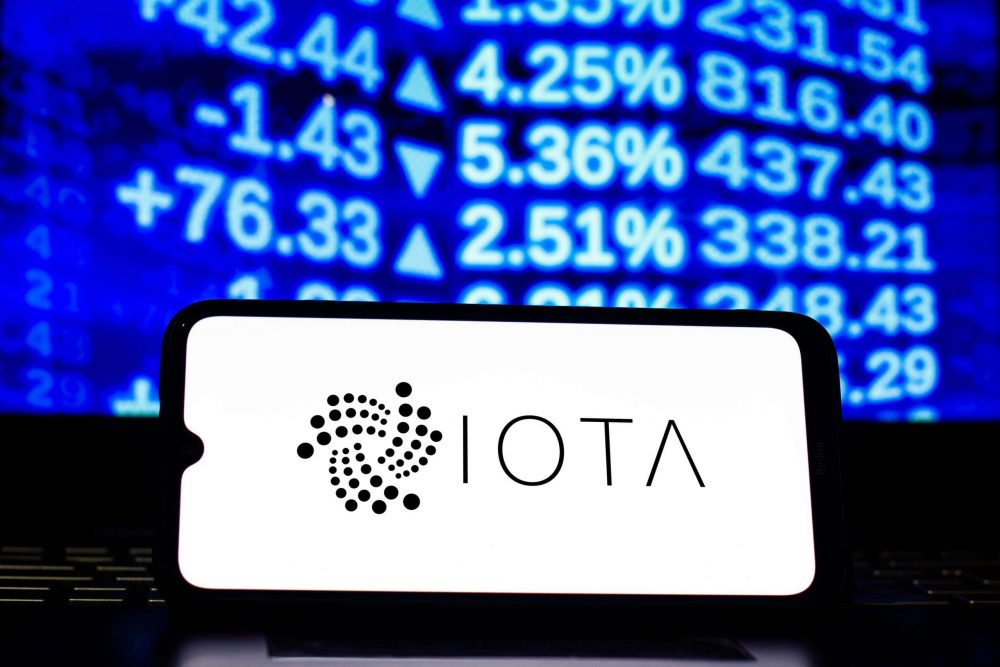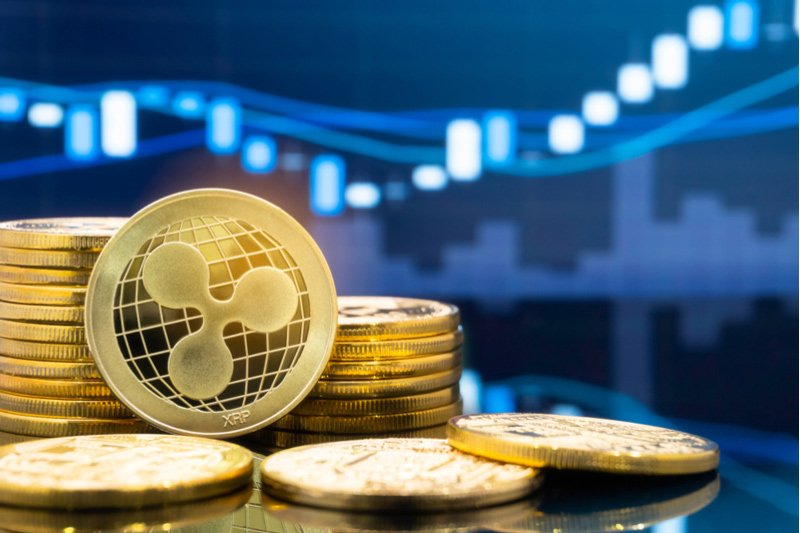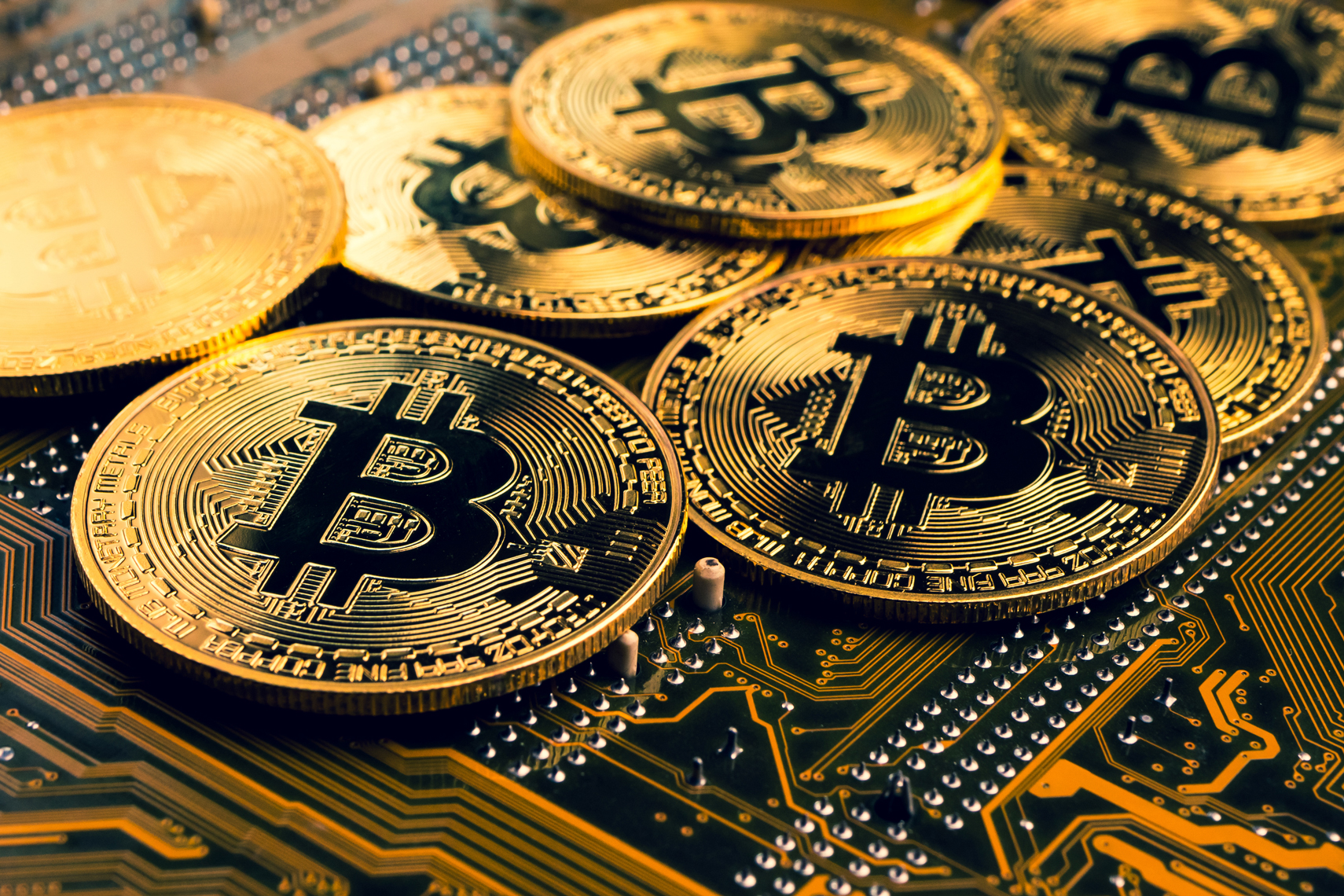El Salvador became the first country in the world to adopt Bitcoin as legal tender in 2021. At the time, businesses were required by law to accept Bitcoin, but in practice this was not enforced.
Now El Salvador is borrowing 1.4 billion USD from the International Monetary Fund (IMF) and in return promised to make corporate acceptance of Bitcoin voluntary and to engage less with Bitcoin.
The IMF and the EL Salvador government have reached a staff-level agreement on a 40-month EFF arrangement to support the government's economic reforms. The agreement with 🇸🇻 is subject to approval by the IMF Executive Board. https://t.co/1GLjFsEhVl pic.twitter.com/M1U77Flz4f
— IMF (@IMFNews) December 18, 2024
El Salvador must let go of Bitcoin
The deal with the IMF requires El Salvador to give up Bitcoin.
“For the public sector, participation in Bitcoin-related economic activities as well as transactions and purchases of Bitcoin will be restricted,” the IMF said.
It remains to be seen whether President Nayib Bukele will continue to buy one Bitcoin a day.
It is quite questionable that the IMF can make such demands on a country’s politics – as if it knew what was better for El Salvador. So far, the entire Bitcoin project has not been a bad deal for the country under President Bukele.
The country’s Bitcoin investments have increased by more than 100% and are now estimated to be worth about $600 million.
In addition, the IMF stated that taxes can now only be paid in US dollars, the country’s official currency. This seems to be particularly beneficial for the US, as it increases demand for its currency.
“Bureaucratic and meaningless nonsense”
Max Keiser, Bukele’s Bitcoin advisor, has a clear opinion about the IMF: “Nobody listens to these idiots.” He called the agreement with the fund “bureaucratic and meaningless nonsense.”
“Bitcoin usage in El Salvador has always been voluntary, is at an all-time high, and continues to grow,” Keiser added.
The reality is different
Whether Keiser’s observation is correct, however, remains questionable. An October survey found that 92% of Salvadorans did not transact with Bitcoin in 2024, while that figure was 88% in 2023.
However, that doesn’t mean that 8% isn’t a significant percentage – in countries like the Netherlands, that percentage is likely to be much lower. Still, it’s not exactly impressive. But it doesn’t have to be. Bitcoin is developing quite solidly in this way.
- El Salvador borrows 1.4 billion USD from the IMF and partially distances itself from Bitcoin - December 19, 2024
- US Bitcoin reserve could push the price to 500,000 USD - December 19, 2024
- Can MicroStrategy still go bankrupt? That would have to happen, according to experts - December 19, 2024

